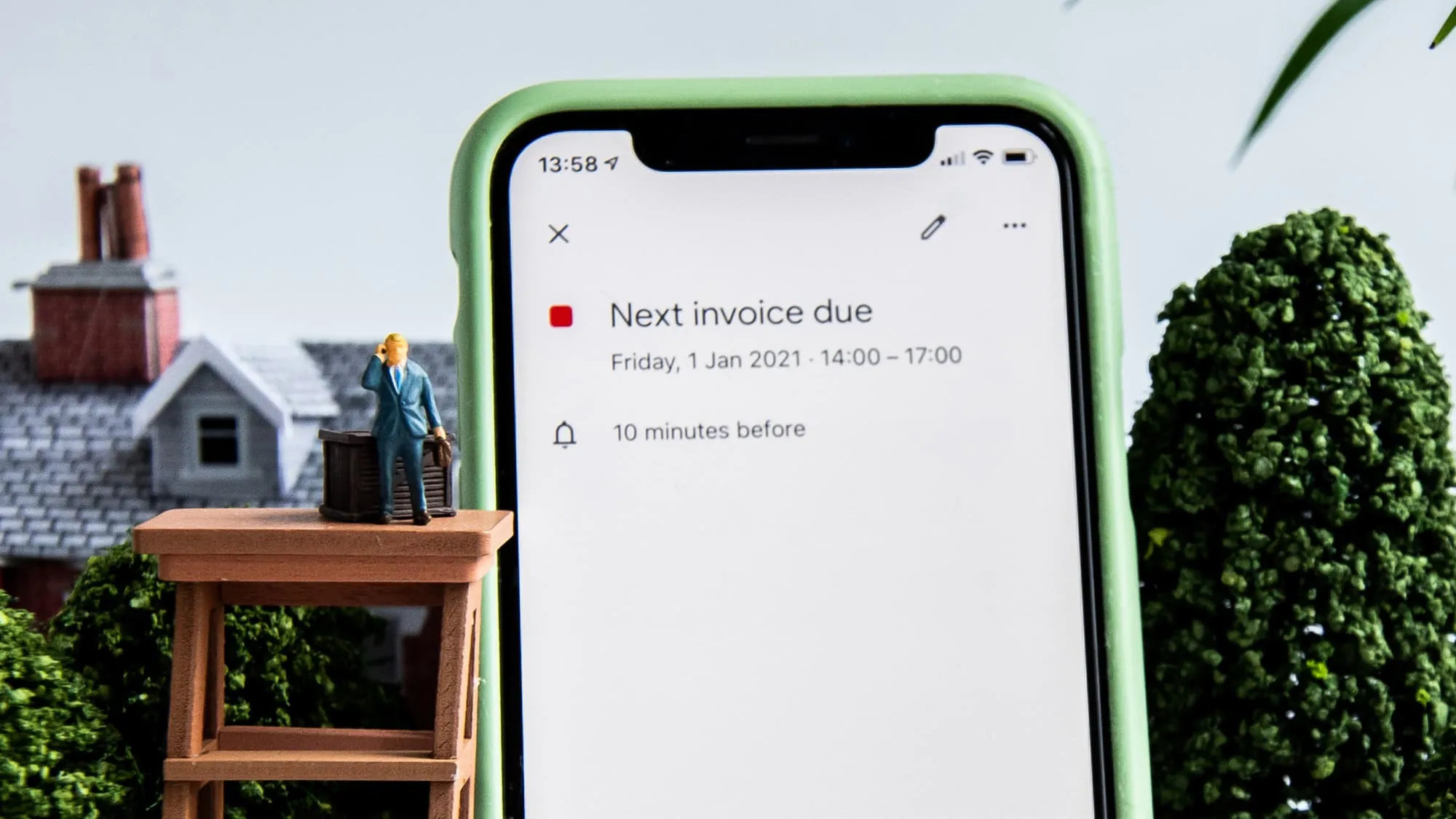How to chase unpaid invoices
Running your own business is stressful enough – that’s without the need to chase late-paying customers who won’t pay their invoices on time. One customer’s delay can easily lead to a chain reaction of other frustrating events. Maybe you need the cash to start on your next project or begin preparing for an upcoming busy season.
Whatever you need the money for, there are some ways to make invoice retrieval a little easier or avoid being in the situation altogether. Sound too good to be true? Read on to learn more about what to do when customers keep paying late.
How to retrieve an unpaid invoice
Communication is keyThe process of unpaid invoice recovery starts with good communication. Let your customer know their payment is late and that you’re willing to speak to them about why they’re unable to pay. It’s often easy to overlook the obvious; sometimes people just forget.
Send a payment reminderIf this doesn’t work or you’re struggling to get through to them, it might be time to escalate your invoice recovery process. Next up, you’ll want to send an invoice payment reminder. This is a formal letter or email that lets them know their payment is late – sending one of these could stand to benefit you if things don’t get solved at this level.
To structure one, attach another copy of your invoice and clearly add a note to say that it still hasn’t been paid. Avoid being argumentative or unnecessarily confrontational as it might not improve your chances of getting paid in the long run.
Set up an invoice payment planIf a customer expresses difficulty paying because of financial issues, you could consider breaking their payments down into smaller chunks to help make it more manageable. Try presenting them with a custom invoice repayment plan or come to an agreement on how much they’ll pay and in how many instalments.
With iwocaPay, you can offer your customers up to 90 days to pay while still getting all the money upfront. This could give your customer the flexibility they need to get back on track without stopping you from growing your business. And, if they do choose iwocaPay, we’ll take on all the risk of chasing the payment. Learn more about iwocaPay today.
{{iwoca-pay-cta="/components"}}
How to avoid having to chase unpaid invoices
Want to avoid having to chase unpaid invoices in the future? Try our top tips.
Credit check your customersThe first step of preventing having to chase late-paying customers is avoiding them altogether. Check who you’re doing business with and give them a miss if they’ve got a poor business history. Consider investing in credit-check software to make this process easier – it might save you time in the future.
Clearly communicate invoice payment termsBe sure to let your customers know how long they’ll have to pay your invoice. The average length for this is usually two weeks – be sure to add it to your original invoice and make it stand out on the document. If you forget or already have invoices with no time period on them, the legal default period is 30 days.
Offer flexible payment termsInstead of setting up an invoice payment plan for late-paying customers, why not offer them more flexible payment terms at the point of sale? Doing so could even mean that they increase the size of their order, enabling you to turn a larger profit and grow your business.
iwocaPay could be the perfect solution to help you do this. It’s a Buy Now, Pay Later solution for small businesses that makes sure you get paid on your terms, everytime. Get paid upfront and in full while giving your customers more flexibility – three separate instalments due over 90 days. And, we’ll never chase you for the money if they don’t pay.
Can you add interest to an unpaid invoice?
While you can’t add interest to unpaid invoices as such, you can add a fixed fee to cover the costs of having to pursue it. This is called a ‘debt recovery cost’ and there are laws around what you can charge once an invoice payment period elapses. Check out the table below for the full details.
| Debt amount | Legal debt recovery cost |
|---|
| Up to £999.99 | £40 |
| £1,000 to £9,999.99 | £70 |
| £10,000 or more | £100 |
While it might be tempting to add an additional fee to your unpaid invoice, you should consider how it could impact your long-term customer relationship. If you’d like to continue doing business with them, it’s unlikely to sit well with them and they may take their business elsewhere.
Trying to prepare for unpaid invoices
No small business wants to spend extra hours chasing money they should already have been paid. Aside from the advice above, it’s also worth trying to manage your cash flow to be prepared for when things do take longer than they should. Having a good plan and a bumper pot of cash could mean that you’re able to keep moving forward instead of getting bogged down in unpaid invoices.
Chasing unpaid invoices: FAQs
Does turnover include unpaid invoices?This will depend on which accounting scheme your business uses. The most common type of scheme is the accrual scheme, which counts turnover as anything that you raise an invoice for. Under this scheme, unpaid invoices will still count towards your total turnover.
The cash accounting scheme is a little different and will only see paid invoices contribute towards your turnover. For more information on both of these schemes, speak to your accountant or visit the HMRC website.
Do you pay VAT on unpaid invoices?Whether you pay VAT on unpaid invoices is similar to whether you’ll include them in your turnover – there are two schemes and it will be different depending on which your business uses. For more information, speak to your accountant or visit the HMRC website.
Are unpaid invoices tax deductible?Yes. You’ll be able to write off any invoices that contribute to your turnover that you don’t expect to receive. But, if anything changes and you do get paid, you’ll need to pay tax on that invoice.












